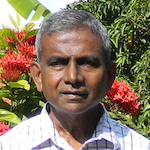Sinhalese & Tamils: The Widening Gulf

By Rajan Hoole –December 10, 2016
Southern Perceptions Mid – 1983
What became increasingly conspicuous in the run up to the 1983 holocaust was the widening divergence in Sinhalese and Tamil perceptions. A common standard seemed to have become out of reach. Among the Sinhalese, as seen in press editorials and letters to the editor, the drift was that the Tamils were passively or otherwise supporting the terrorists, and to meet such a situation, anything goes. Perhaps without fully realising where it was leading them to, the Government too encouraged this. It diverted attention from the rigged Referendum of December 1982, the Government’s lack of legitimacy, the violence at the bye-elections of May and its cavalier attitude to democratic norms. There was a two way relationship in extremism in public sentiment as articulated by the media on the one hand and by the Government on the other. Each seemed to feed the intemperateness of the other. By mid-July the obsession with terrorism as Tamil terrorism seemed to supersede everything else. President Jayewardene’s interview to the Daily Telegraph of London (Sect. 4.5) about his no longer being able to take into account the lives of Tamils or ‘their opinion about us’, had the effect of raising the flag for a showdown. The Press and even the SLFP seemed to have swallowed the bait, and were rallying to the standard either vocally or passively. The UNP Government of Jayewardene’s had thus silenced opposition in the South and had secured temporary conformity; but at a disastrous price.
As for Tamil opinion, it seemed to have largely opted out of trying to find expression in the mainline media. The Jaffna-based Saturday Review was perhaps the most spirited exponent of the Tamil point of view. The fact that it was sealed under the PSO on 2nd July 1983 with hardly a whimper of protest from the Southern media was a sign of what the country was sliding towards. It is also notable that on the eve of the July holocaust, Amirthalingam pointed out that the English Press had in recent times failed to publish his letters written to the President in his capacity as Leader of the Opposition. In those times these letters accurately detailed events in the North-East, and offered a different perspective.
We first give a few examples that point to the two-way interaction between public opinion as represented in the media and the rulers.
The Island of 19th May 1983 carried a letter by A. de Silva of Wadduwa on suggestions to stop terrorism in the North. His main suggestions were the following:
Declare Emergency in the North and East. Send Army and Police reinforcements to hunt terrorists and kill at sight. Colonise the so-called Traditional Tamil Homelands with Sinhalese. Declare once and for all that under no circumstances will Eelam ever be given. The cost of maintaining the security forces in the North must be recovered by a special tax on the residents. Pay no compensation to the victims of terrorism [presumably civilian victims of counter-terrorist actions] as the former [i.e. civilians] refuse to give information.
It may be noted that some of the key suggestions became more or less open government policy from mid-1984 under Lalith Athulathmudali as National Security Minister.
Just after the commencement of relatively small scale communal violence in Trincomalee, Colombo and elsewhere, the Sun of 4th June carried an editorial that showed genuine alarm at the prospect of spreading communal violence and the upsurge of lawlessness:
Just after the commencement of relatively small scale communal violence in Trincomalee, Colombo and elsewhere, the Sun of 4th June carried an editorial that showed genuine alarm at the prospect of spreading communal violence and the upsurge of lawlessness:
